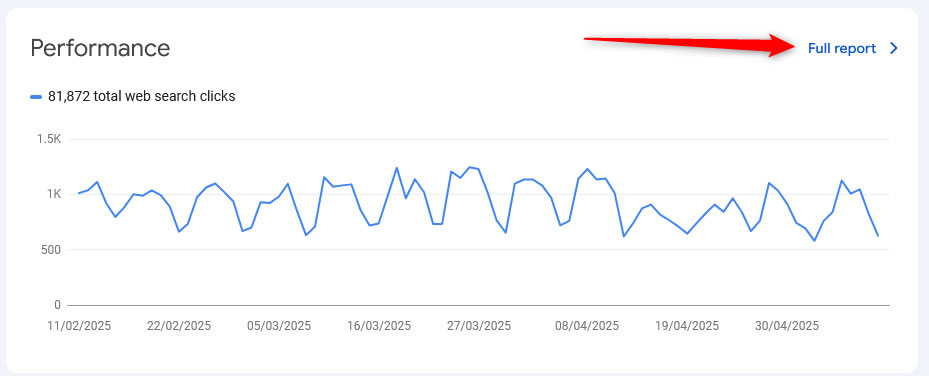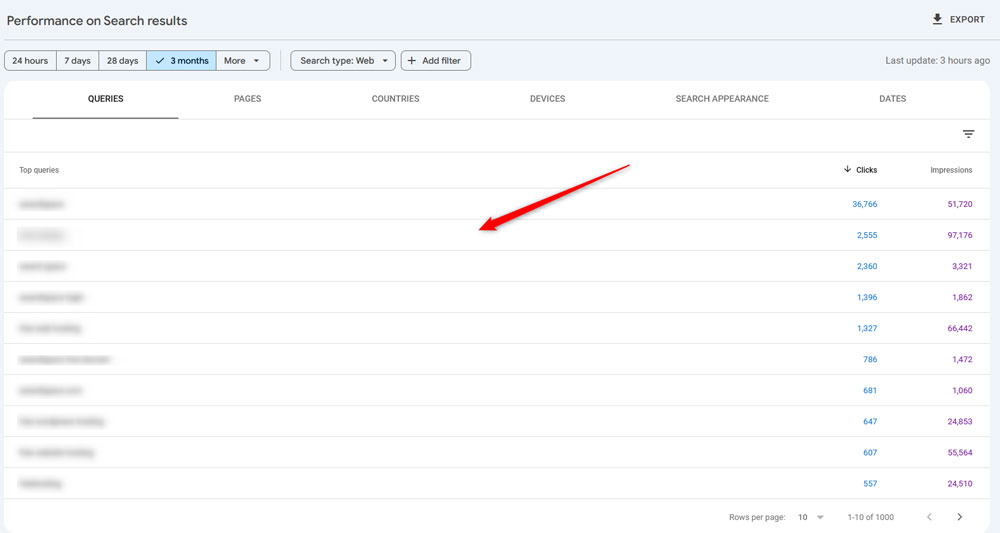In this article, we share 6 advanced keyword research techniques that can help you find new opportunities, enhance your website’s competitive edge, and eventually improve the organic traffic performance.
Keyword research is a key activity for any successful SEO strategy. Today’s saturated online field requires a more refined approach, instead of the basic practices that used to be just enough back in the day.
Why are Advanced Keyword Techniques Important
Basic keyword research can help you identify various popular terms and trendy search queries, but a well-conducted SEO strategy requires more. Advanced keyword research techniques are important because:
- You can find out long-tail niche keywords with great conversion potential.
- Advanced techniques allow you to understand user intent better.
- Discover new, uncharted topics to write about.
- Gain insights on competitors’ strategies and approaches.
1. Focus on Topic Clustering and Semantic Keyword Mapping
Clustering semantically related keywords can sound like rocket science for many, but in reality is not a hard method to use. The final goal of this method is to build topical authority and show Google and other search engines that your content is rich, deep, relevant, and useful.
This method suggests that you don’t focus only on a single high-volume keyword in isolation, but instead group semantically related keywords within a central broad theme, known as the pillar theme or pillar topic. This type of advanced keyword technique mimics Google’s complex evaluation methods and aims at making search engines reward your website with better search result positioning.
Topic clustering and semantic mapping can bring good results because contemporary Google algorithms prioritise semantically relevant topics and content groups, along with user intent over simple keyword repetition. In fact, repeating a focus keyword too many times can be detrimental for your website – the so-called keyword stuffing should be avoided at any given moment.
To make topic clustering and mapping, follow these steps:
1. Choose a Broad Topic (Pillar Content).
Start the process by choosing a high-volume broad keyword. For example, if your website focuses on cooking, select a broad term such as “Salads”.
2. Find Subtopics and Related Terms.
Use tools such as AnswerThePublic, SEMrush, and others to find subtopics for your pillar content. The idea is to find out what people are looking for and delve deep into these topics. In the example of salads, such subtopics, terms, and questions might be:
- Summer salads with exotic dressings.
- Best salads for BBQ sides.
- Salad nutrition facts.
3. Map the Related Keywords
Now that you have made a list with subtopics, it is time to map these terms (keywords) to each other. This means you have to delve deeper into keyword research for each term and search for long-tail keywords with a very specific meaning. Examples can include:
- Long-tail variants of a given seed keyword that focus on a niche topic.
- Synonyms and semantically related terms – salad bowls, toppings, fresh veggies.
4. Create the Pillar Page
After you have done the comprehensive research, it is time to start working on the content itself. Create the pillar page that provides in-depth content about the main topic. The idea is to create a single broad and comprehensive article that focuses on covering anything about the main theme (salads) and then create numerous subtopic articles that focus on a certain part of the main topic (salad bowls, vegan salads, salad dressings for meat lovers) and ling these subtopics to the main topic.
Bonus tip: Use internal linking with a descriptive anchor text, so as to give more strength to the semantic associations between articles.
2. Analyze User Search Intent
Contemporary SEO practices include matching search intent with relevant website content. This makes it mandatory for each SEO enthusiast and seasoned professional to understand and match what the searcher wants to achieve with their search session in Google (or any other search engine) and their website content.
Search intent can be classified into four main categories:
- Informational – the user wants to gain more information about a given topic (how to cook a Caesar salad).
- Navigational – the user wants to find a specific piece of information or a specific website section. For example, a visitor searches the subscription form on your website, as they want to receive email materials from you.
- Commercial Investigation – The user is comparing prices and products before making a decision for purchase decision. For example, the search query is “best types of cheese for a Caesar salad”.
- Transactional – The user is ready to make a purchase or any other action. For example, type in “Buy a metal salad bowl”.
Analyzing search intent is important, as it helps you boost website visitors’ engagement, lower bounce rate, and also boosts rankings in SERPs, which means it gives you greater possibilities for improved organic traffic towards your pages.
To analyze search intent, you can check directly at the Google results in SERPs (search engine result pages). Keep in mind that these pages contain more than just links to pages Google believes are relevant to the search query. The result pages can also give you insights into the users’ intents. To get the most out of this approach, have a look at:
- Featured Snippets – In most cases, snippets indicate a preference for a quick answer, which can give you a ton of ideas for your website’s FAQ sections.
- People Also Ask – this section gives you information about related questions that searchers often ask in search sessions.
- Top Stories – such section indicates that searchers demand for timely content.
Another method to analyze search intent is by using SEO tools such as SEMrush, Ahrefs, and others. These platforms give a comprehensive analysis of user intent for each keyword you analyze via them.
3. Use Google Search Console to Find Relevant Search Queries
Google Search Console (GSC) can provide a comprehensive analysis of the keywords your website is ranking for. This method suggests that you use GSC to find out for which search queries your website appears in SERPS and use them more prominently across your pages, so as to boost visibility and traffic.
To use this method, log in to Google Search Console.
Then, click on Full Report within the Performance section:

After that, navigate to the Queries tab and check the list of terms and words:

These are the terms that your website ranks for. Analyze them thoroughly and think of how you can enrich your website content with relevant content
For example, you have a publication about “Simple Avocado and Chicken Salad Recipe” and via the Queries tab in GSC, you notice that this page appears in searches for the term “chicken salad vs avocado salad”. This insight gives you a great opportunity to create content that specifically refers to this particular query.
By paying attention to search queries, you can significantly boost website traffic and topic relevancy to search queries.
4. Group Low Search Volume Keywords
If you are using SEO tools such as SEMrush and Ahrefs, you have the chance to see the search volume and difficulty of each keyword. In most cases, low-volume keywords are considered useless, however, this is not completely true.
In certain situations, grouping various low-volume keywords into a single publication improves the chances that this particular publication appears in many different search queries and therefore improves the chances for generating traffic to your website. This is one of the most underestimated advanced keyword research techniques.
For example, you find out that spicy salads are trendy in New York at the moment, however, you notice that keywords regarding this topic have with very low volume, between 0 and 10. To capitalize on the fact of the trend and the seemingly unimportant keywords, you can blend such keywords to come up with topics that relate to the trend – instead of focusing on “spicy salads”, you can come up with ideas such as this one – “best restaurants in NYC that offer a list of spicy salads for hot cusine experience”.
Although looking messy, such an approach allows your publication to appear in many search queries and therefore benefits from enhanced traffic.
Additionally, you benefit from using low-competition keywords, so not many competitors are likely trying to rank for such keywords.
5. Use Google Trends to Find New Opportunities
Google Trends is a handy tool that allows you to identify what the trending topics are in a particular area. Knowing what these are gives you the chance to start using trending terms as keywords before they get a high search volume and difficulty.
Adopting this approach grants you the chance to become ahead of the curve and be prepared for a surge in searches for a particular topic, and therefore make your website appear in search results more often and on higher positions.
Furthermore, using Google Trends allows you to follow:
- Seasonal changes in Term Popularity. For example, a travel agency would focus on SEO and PPC activities mainly during vacation seasons when people are more likely to plan trips and contact agencies.
- Seasonal Preferences. Align your content with such trends. For example, if you are running a clothes store, you can create content that resonates with clothing search terms found in Google Trends, so you improve your chances for traffic spikes.
6. Find Keyword Insights in Reddit and Quora
Reddit and Quora are two of the most popular discussion platforms on the Internet today. These websites can provide you with tons of insight directly from the perspective of potential and paying customers.
For example, delving deep into the content of Reddit and Quora, you have the chance to:
- Identify Relevant Threats and Topics: Research both platforms for topics from your business field, and also research related topics, as they can give you tons of ideas for useful keywords for your website.
- Engage with Users: Communicating with other users from Reddit and Quora can grant you specific information, intent, and keywords that you can implement in your SEO strategy right away.
- Directly extract keywords: Write down recurring expressions, terms, phrases, and questions that can be used as prospective keywords on your website.
7. (BONUS) Search Competitor Pages for Niche Keywords
One of the most common advanced keyword research techniques involves a comprehensive search for niche keywords used by your competitors. Such an approach allows you to delve deeply in the ideas and approaches of other successful sites and get insights for your own.
If you are interested in the topic, then check out our comprehensive article on How to Search for Keywords on a Web Page
Conclusion – Advanced Keyword Research Techniques
Understanding the foundation of keyword research is no longer enough to stay competitive in the vastly saturated digital field. To have the chance to make your website stand out from the competition, you should go beyond the simple approaches and embrace various advanced keyword research techniques that can help you get deep insights and align better with the online user behaviour.
Such advanced keyword research techniques include building topic clusters, analyzing search intent and SERP features for precise targeting, and adopting techniques such as semantic mapping, long-tail keyword optimization.
In today’s world, keyword research is a comprehensive process rather than a one-time activity, which requires spending time and adopting as many advanced keyword research techniques as possible.
